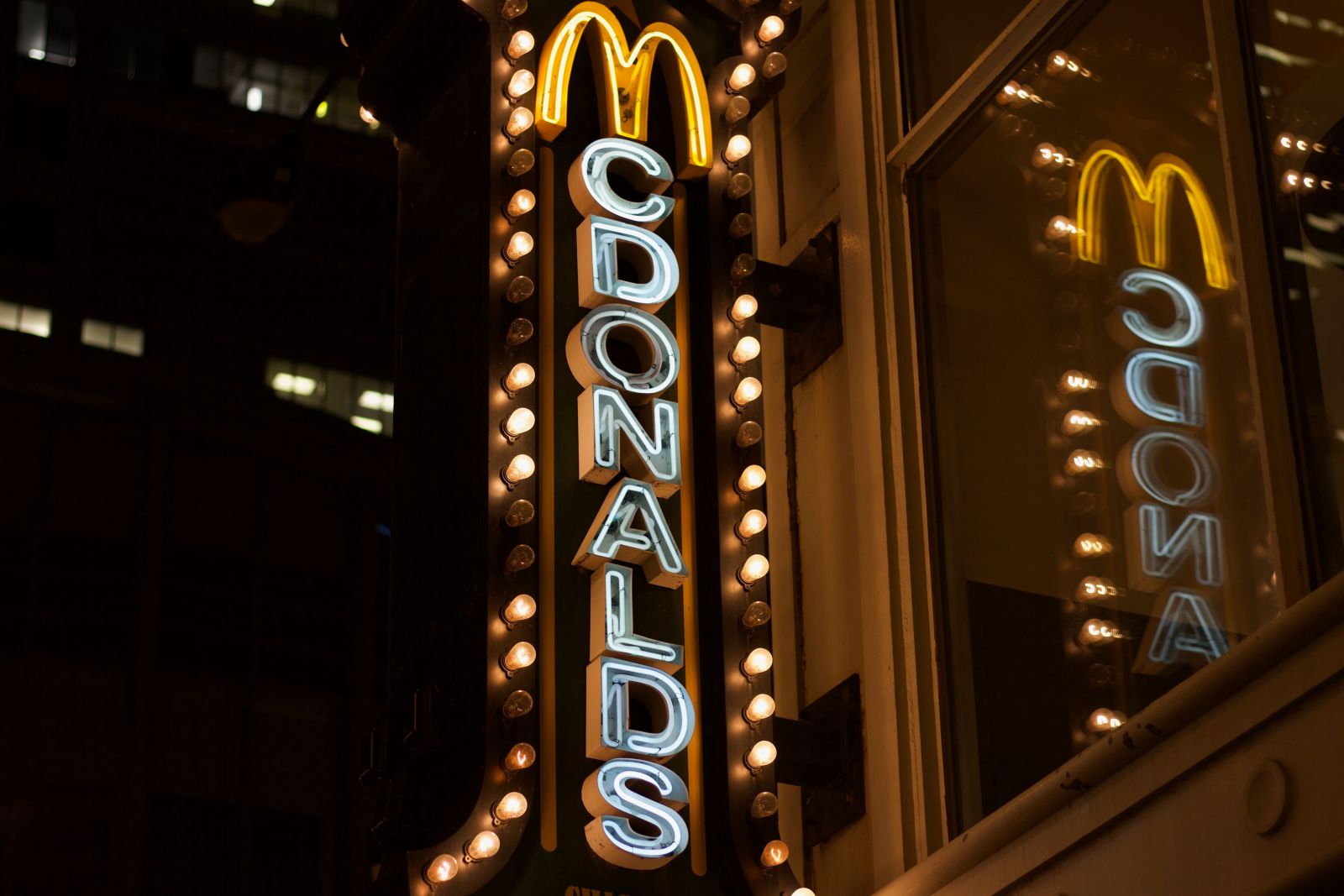
By arguably most measures, McDonald’s (MCD) is a boring investment. That’s not to cast aspersions on the American business icon. However, even in the consumer realm, it doesn’t do anything offensive (health considerations aside). It exists, usually as a means to satisfy an end when no other options are available. By that definition, it’s a valuable service but that also means investors aren’t exactly clamoring for MCD stock.
To be sure, though, the lack of an excitement factor for the fast-food giant makes the idea relevant at this juncture. Even with inflation data moving in the right direction, many U.S. households remain under pressure. “There are some things you can stop buying or slow down on buying,’’ said Mark Dye of Port St. Lucie, Florida, in an interview with AP.
And that’s not the only personal testimony of consumer hardships. “We are using credit cards a lot more,” remarked Richard Priedits of Grand Rapids, Michigan. Obviously, MCD stock represents a consumer discretionary investment. However, because McDonald’s operates on the lower rungs of the trade-down effect, the fast-food brand should look much more attractive than pricier eatery fare.
However, MCD stock may not get the respect it deserves because of competition. Specifically, Starbucks (SBUX) – which avails itself under similar valuation multiples to McDonald’s – has proven more resilient. But this framework might change, thus incentivizing a closer look at MCD stock.
SBUX Beats Out MCD Stock in Terms of Market Share
While investors can dissect the individual earnings performances of McDonald’s, Starbucks and other competitors in the retail food and beverage industry, it’s probably more insightful to consider market share data. That way, we can examine the progress of one company over the other. When we do that for SBUX and MCD stock, the result isn’t favorable for the Golden Arches.
Specifically, the U.S. Census Bureau provides data for advanced retail sales for the food services and drinking places industry. Back in the first quarter of 2019, McDonald’s carries 8.13% market share for the food/beverages retail sector. On the other hand, Starbucks started Q1 that year with 10.21% market share.

Naturally, the initial impact of the COVID-19 crisis and the subsequent post-pandemic rumblings imparted an ebb and flow to both companies’ standing in the retail space. However, at the most recent count (Q2 2023), McDonald’s saw its market share dip conspicuously to 7.34%. In sharp contrast, Starbucks gained slightly to 10.35%.
As alluded to earlier, both companies feature similar valuation multiples in that neither enterprise is particularly remarkable. For example, McDonald’s price-earnings ratio comes in at 26.07X while Starbucks prints 30.60X. Presently, the trailing-year PE ratio for the retail (grocery and food) sector sits at 16.75X. Sure, you can say that MCD is relatively undervalued but again, both stats are objectively unremarkable.
Given that we’re basically null for valuation, the winner in this two-company battle goes to Starbucks. Fundamentally, it has maintained a baseline market share whereas McDonald’s has slipped.
Ordinarily, most investors might want to avoid contrarianism in big blue chips because of the lack of growth mobility. Let’s face it – as mature enterprises, neither McDonald’s nor Starbucks have many viable options to expand. There are only so many countries unspoiled by American capitalism.
Cynically, then, something bad has to happen to the other for actualizing said expansion opportunity. And that’s exactly what might be favorably on tap for MCD stock.
Social Normalization Trends Benefit McDonald’s Over Its Rival
Right off the bat, two factors should materialize over the intermediate to long term that should benefit MCD stock. First, the remote work experiment that dominated white-collar culture may gradually come to an end. Second, recessionary pressures may build, inspiring an acute awareness of the trade-down effect.
Regarding the former catalyst, the return-to-office framework is steadily becoming a foregone conclusion. Ironically, Zoom Video Communications (ZM) – a video-conferencing platform that helped ease the transition to remote work during the pandemic – recently requested that employees who live within a 50-mile radius of its offices to work onsite two days a week, per an AP report.
Frankly, the mandate seems brutally unfair, favoring some and disfavoring others simply based on commuting distance, which is almost of zero relevance to hiring companies (so long as employees meet their expected schedules). So, I personally anticipate Zoom to mandate everyone to come back to the office.
Speaking of the latter catalyst, concerns about a recession are varied but nevertheless represent a very real possibility. And if the Federal Reserve fails to spark a soft landing, not only do employers have the power pendulum swing back to them (i.e. return-to-office mandates), employees will find ways to batten down the hatches.
If so, you can reasonably expect the trade-down effect to rise in full force. And that should make MCD stock more appealing as consumers pivot away from pricey Starbucks to cheaper McDonald’s.
On the date of publication, Josh Enomoto did not have (either directly or indirectly) positions in any of the securities mentioned in this article. All information and data in this article is solely for informational purposes. For more information please view the Barchart Disclosure Policy here.
.png?w=600)





